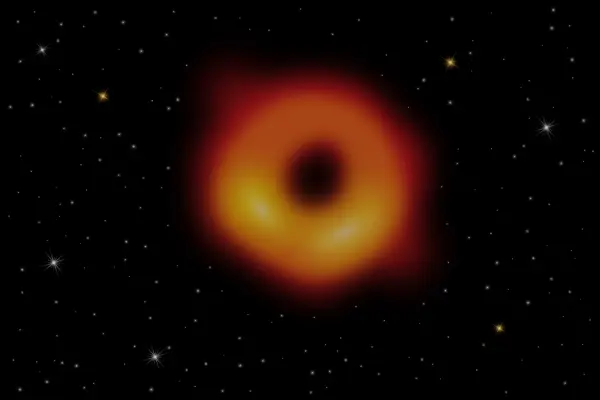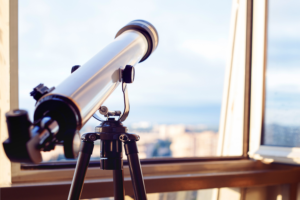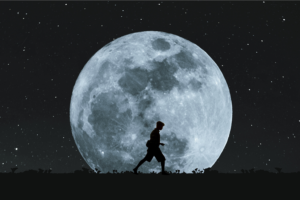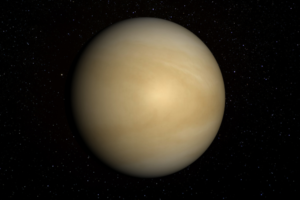Which Telescope Can Be Used To Find A Black Hole?
Many amateur astronomers often wonder if they can use a telescope to find and observe a black hole.
Black holes are some of the strangest and most fascinating objects in outer space. A black hole is a place in space where gravity pulls so much that even light can not get out.
It’s a tremendous amount of matter crammed into a very small — in fact, zero — amount of space and that is what results in a powerful gravitational pull.
Key Takeaways:
- Black holes are detected as surrounding material (like gas) is funneled by the force of gravity into a disk around the black hole.
- The Event Horizon Telescope (EHT) is a large telescope array consisting of a global network of radio telescopes.
- The Event Horizon Telescope involves eight ground-based radio telescopes around the globe, operating together as if they were one telescope the size of our entire planet.
- From the viewpoint of an observer outside the black hole, time stops.
How is it possible to detect a black hole?
A black hole and its shadow can be captured by an international network of radio telescopes called the Event Horizon Telescope (EHT).
Black holes are detected as surrounding material (like gas) is funneled by the force of gravity into a disk around the black hole. The gas molecules in the disk swirl around the black hole so fast that they heat up and emit X-rays. These X-rays can be detected from Earth. Black holes can also be detected by watching for motions of stars near the black hole.
What is the Event Horizon Telescope?
The Event Horizon Telescope (EHT) is a large telescope array consisting of a global network of radio telescopes.
Each telescope site records electromagnetic radiation that is time-coded with atomic clocks. These observations are then combined using very-long-baseline interferometry, or VLBI, which is a technique for synchronizing and integrating multiple sources of radio data. The complex calculations account for critical details such as the movement and rotation of the Earth.
The project’s observational targets include the two black holes with the largest angular diameter as observed from Earth: the black hole at the center of the supergiant elliptical galaxy Messier 87 (M87), and Sagittarius A* (Sgr A*) at the center of the Milky Way.”

Related
How many telescopes are in the Event Horizon Telescope?
The Event Horizon Telescope involves eight ground-based radio telescopes around the globe, operating together as if they were one telescope the size of our entire planet.
What happens if a person goes into a black hole?
You would end up looking like spaghetti & die. The gravitational force on the person’s toes would be much stronger than that pulling on your head. Each bit of your body would also be elongated in a slightly different direction.
Fortunately, this has never happened to anyone — black holes are too far away to pull in any matter from our solar system. But scientists have observed black holes ripping stars apart, a process that releases a tremendous amount of energy.
Does time stop in a black hole?
From the viewpoint of an observer outside the black hole, time stops. An object approaching the event horizon would appear to be slowing down as it approaches the black hole instead of speeding up as we would expect. This is because of time dilation, which slows the passing of time for an object moving close to the speed of light with respect to an outside observer.
Will our Sun become a black hole?
No, it’s too small for that! The Sun would need to be about 20 times more massive to end its life as a black hole. In about 5 billion years, the Sun will start to run out of hydrogen in its core to fuse, it will cast off its outer layers, and its core will form a white dwarf – a dense ball of carbon and oxygen and it will begin to collapse.
Can a black hole disappear?
It takes a shockingly long time for a black hole to shed all of its mass as energy via Hawking radiation. It would take 10100 years, or a googol, for a supermassive black hole to fully disappear.
Over time they shrink down to nothing and simply pop away in a flash of energy. It’s not exactly fast.
ABOUT US
We are a team of active amateur astronomers, here to help you with all your astronomy and science related needs – this is anything, from reviewing the latest telescopes to be released to talking about gravity and neurons. The Big Bang Optics was started because of our love for astronomy and to help others like us find the best telescope and accessories.
LEGAL DISCLAIMER
The Big Bang Optics is a participant in the Amazon Services LLC Associates Program, an affiliate advertising program designed to provide a means for sites to earn advertising fees by advertising and linking to Amazon.com. The Big Bang Optics also participates in affiliate programs with Clickbank and other sites. The Big Bang Optics is compensated for referring traffic and business to these companies.




